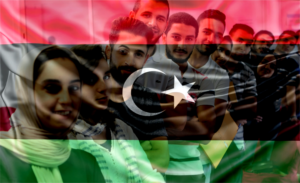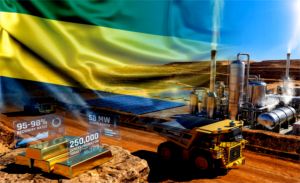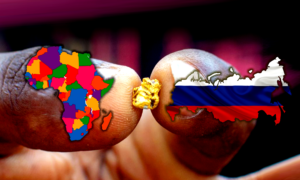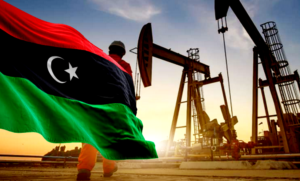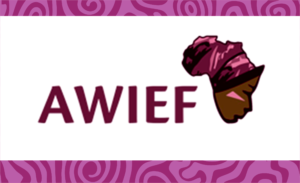Algeria, Destination for Investment Opportunities: from Oil Dependency to Diversified Investment Horizons
Algeria, Africa’s largest country, is quietly emerging as a dynamic hub of investment opportunities. Nestled between the Mediterranean coastline and the vast Sahara Desert, the People’s Democratic Republic of Algeria is not only a geopolitical heavyweight in the Maghreb but also a nation striving to reinvent its economic identity beyond hydrocarbons.
![]()
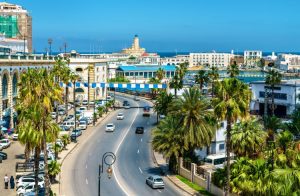
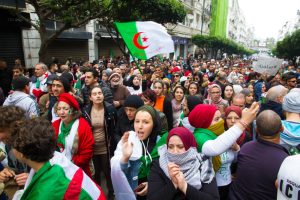
![]()
Hydrocarbons account for the majority of Algeria’s export earnings, making the country vulnerable to fluctuating oil prices and global energy transitions. Yet policymakers in Algiers have signaled a determination to shift toward sustainability. Recent reforms aim to encourage foreign direct investment (FDI), simplify regulatory hurdles and modernize financial systems. These are steps that international analysts believe could unleash untapped potential across several sectors.
Algeria’s vast natural resources and youthful population give it a unique advantage, but unlocking that potential requires bold reforms and stronger investors’ confidence.
Sectors of High Growth Potential
- Renewable Energy: With nearly year-round sunshine in the Sahara, Algeria is positioning itself as a solar power powerhouse. The government has set ambitious renewable targets, with projects designed to supply both domestic demand and export clean energy to Europe.
- Agriculture: Despite its arid landscapes, Algeria boasts fertile coastal plains. Investment in irrigation, agritech, and sustainable farming could help reduce the country’s heavy reliance on food imports while creating jobs in rural areas.
- Tourism: From Roman ruins in Timgad and Tipasa to the golden dunes of the Sahara and Mediterranean beaches, Algeria offers a rich but underdeveloped tourism sector. Security improvements and infrastructure upgrades are gradually opening doors for international visitors.
- ICT: Algeria’s young, tech-savvy population is driving demand for digital services. Start-ups and international tech firms see opportunity in fintech, e-commerce, and digital infrastructure development.
With a high Human Development Index (HDI) score and one of Africa’s highest life expectancy rates, Algeria stands out in Northern Africa for progress in social welfare. Education and healthcare access are widely available, and ongoing reforms aim to strengthen social safety nets.
At the same time, unemployment, especially among the youth, remains a pressing concern. The government hopes that foreign investment in emerging industries will generate new jobs and foster entrepreneurial ecosystems that can absorb Algeria’s growing workforce.
Politically, Algeria occupies a delicate balance. It is a republic with deep Arab-Berber roots, where Arabic and Tamazight are official languages and Islam is the state religion. Its governance model, though centralized, has shown resilience and ranks relatively high in African governance indices.
Algeria also leverages its energy exports to assert influence in the Maghreb and Mediterranean regions, positioning itself as both a regional power and a vital partner in Europe’s quest for energy security. Yet political observers note that sustained reform, transparency and investor-friendly policies will be crucial to maintaining credibility.
Towards investments promotion pursuit for Algeria, the road to economic transformation is a gradual progression. Dependence on oil revenues continues to overshadow other sectors, and bureaucratic hurdles remain a frequent complaint among foreign investors. Yet, momentum is building.
Algeria’s vast landmass, youthful population, cultural heritage and abundant natural resources position it uniquely as both an African and Mediterranean gateway. If the country can harness investment across energy, agriculture, tourism, and technology, it could not only diversify its economy but also redefine its place in the global marketplace.
Algeria is a nation rich not only in oil but in talent, history, heritage and opportunities. The world is beginning to notice it: and now it’s Algeria’s time to act strategically and fast.
Investment opportunities attract immigrants: the measures established by the government to support the creation of companies or the opening up of the field to investment in various fields were the triggers for these binational companies, most of which have graduations and qualifications. French channel France 3 broadcasted a television report on the issue. To highlight the scale of the phenomenon, it was announced that nearly 30,000 French people of Algerian origin had made the choice to invest in Algeria. The same source immediately establishes the link between this ‘trend’ and the Algerian State’s aid to young people wishing to invest in the country, referring to a loan ‘of up to EUR 1 million, at zero interest rates and repayable after 10 years’ exercise’.
Agriculture Sector: the agriculture sector in Algeria is a key sector and constitutes a major pillar of the national economy due to its contribution to employment and the national GDP. It accounts for a population of 2.6 million agricultural laborers, representing over 74% of rural workers and 24% of the national workforce. Moreover, it ensures the country’s food security by covering more than 74% of the national needs for agricultural products.

The government has implemented all the necessary tools through a coherent policy aimed at strengthening the country’s food security and promoting a modern and efficient agriculture, creating wealth and jobs. Thus, the policy for the development of the agricultural and rural sector is designed through a structured and integrated approach, based on coherent alignment with other sectoral policies.
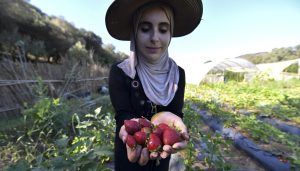
This approach will enable the development of agriculture as a vector for diversification and economic growth. The economic growth model adopted for agriculture is primarily based on promoting agricultural and agri-food investment. In this regard, the government’s priority objectives focus mainly on revitalizing the development of rural areas, forest areas, Saharan regions, mountains, and high plateaus, which will have a significant impact on agricultural growth.
Productive Base to Promote:
- Development of agricultural land, especially in the Grand South;
- Development of strategic sectors (Maize, Sunflower, Rapeseed, Soybeans, cereals, food legumes, etc.);
- Development of integrated farms;
- Encouragement of public-private partnerships through pilot farms;
- Development of agricultural mechanization;
- Development of irrigation systems and water-saving equipment;
- Development of fertilization techniques to optimize the use of inputs in various agricultural sectors;
- Establishment and development of modern nurseries;
- Development of greenhouse cultivation (multi-chapel greenhouses);
- Development of fodder crops (alfalfa, hydroponics, etc.);
- Valorization of agricultural production in sheep, cattle, and goat sectors, white meats, fruits, and vegetables as well as the dairy sector;
- Valorization of local products (dates, oils, table grapes, etc.);
- Development of cold storage and preservation capacities.
- Development of wool conditioning and transformation workshops;
- Establishment of a logistical base for exporting agricultural products;
- Valorization (slaughtering, processing, and packaging) of meat products (red meats);
- Development of sheep and cattle breeding and fattening;
- Development of units for leather processing and tanning;
- Forestry economy and valorization of forest products;
- Agrotourism and pescatourism in lakes and wetland areas.
Agri-Food Industry Sector:
- Establishment of fruit and vegetable processing units;
- Establishment of oilseed processing units (sunflower, rapeseed, etc.);
- Establishment of dairy product processing units;
- Establishment of fertilizer production units;
- Manufacture of veterinary and phytosanitary products;
- Development of packaging factories for sorting and packaging units for agricultural and agri-food products;
- Expansion of cold storage and preservation capacities.
Fisheries and Aquaculture Sector: The Fisheries and Aquaculture Sector in Algeria offers various investment opportunities, both in maritime fishing and in the fishing industry. Here is an overview of the investment activities available in this sector:
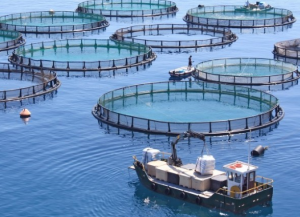
- Maritime Fishing,
- Fishing Industry Activities:
- Construction, Repair and Maintenance Activities for Maritime Fishing Vessels,
- Aquaculture,
- Aquaculture Activities,
- Aquaculture Industry Activities,
- Construction, Repair, and Maintenance Activities for Aquaculture Vessels.
Industry and Pharmaceutical Production Sector: the national industrial sector has significant potential for growth. The government prioritizes the development of the national industry. In this perspective, the government seeks to enhance Algeria’s attractiveness as an investment destination. This initiative also aims to promote the digital economy, develop and provide flexible and innovative financing to encourage industrialists to modernize their production tools.
The industrial sector faces an unprecedented challenge, which is to increase its contribution to strengthening the attractiveness of the national economy for foreign direct investment (FDI), which allows Algeria to increase capital and technology flows. Areas of investment opportunities include:
- Mechanical, Aerospace, and Naval Industries,
- Electrical, Electronic, and Household Appliance Industries,
- Agri-food Industry,
- Chemical Industry,
- Materials Industry,
- Textiles and Leather,
- Iron and Steel Industries,
- Advanced Technology Industries
- Wood and Furniture Industries.
New and Renewable Energies Sector: potential of Algeria in the Field of New and Renewable Energies:
- Algeria possesses one of the highest solar potentials in the world. The duration of sunlight over almost the entire national territory exceeds 2000 hours annually and can reach up to 3900 hours (high plateaus and Sahara).
- The energy received annually on a horizontal surface of 1m² is nearly 3 kWh/m² in the north and exceeds 5.6 kWh/m in the Grand South.
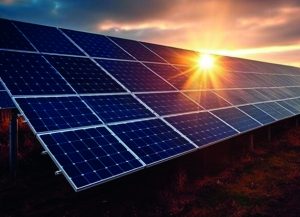 Through its renewable energy program, Algeria aims to position itself as a major player in electricity production from photovoltaic and wind energy, while integrating biomass, cogeneration, geothermal, and solar thermal energy. These energy sectors will drive sustainable economic development, fostering a new model of economic growth and the establishment of wealth and job-creating industries, in addition to environmental preservation. Focusing on sectors with significant impacts on energy demand, such as buildings, transportation, and industry, this program offers investors multiple investment opportunities:
Through its renewable energy program, Algeria aims to position itself as a major player in electricity production from photovoltaic and wind energy, while integrating biomass, cogeneration, geothermal, and solar thermal energy. These energy sectors will drive sustainable economic development, fostering a new model of economic growth and the establishment of wealth and job-creating industries, in addition to environmental preservation. Focusing on sectors with significant impacts on energy demand, such as buildings, transportation, and industry, this program offers investors multiple investment opportunities:
- New and Renewable Energy Sector,
- Green and Circular Economy Sector,
Tourism Sector: Tourism is no longer a choice but an imperative in the current situation. It represents an alternative resource to hydrocarbons as an exhaustible resource. The tourism sector has implemented a strategy (Tourism Development Master Plan – TDMP by 2030) adopted by the Government Council in 2008, clearly demonstrating the state’s willingness to develop this sector by defining the objectives to be achieved. Five essential dynamics have been identified, where investment plays a predominant role in driving growth and providing wealth and employment.
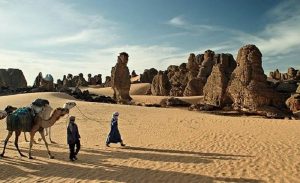
![]()
Coastal Tourism: With its magnificent bays, among the most beautiful in the world, and its sublime beaches, the Algerian coast is the dream destination for coastal tourism and water and underwater sports. Regions renowned for their aquatic sites and practices of underwater sports such as Oran, Skikda, Bejaïa, Jijel and Annaba.
Forecast for the establishment of 28 thalassotherapy centers in coastal provinces.
Saharan Tourism: Saharan tourism can be a real economic asset if the tourist attractions that this region holds are well exploited to transform it into a true hub of attraction for national and international tourism. It can also contribute to job creation in regions where opportunities to develop other activities in other sectors are limited.
Thermal Tourism: Algeria is rich in thermal springs with medicinal properties. Indeed, the thermo-mineral potential in Algeria is significant but still untapped. We have 220 thermal springs in Algeria to be developed, about fifty regional thermal stations, and already eight internationally renowned stations. The sector offers opportunities in the following areas of investment opportunities:
- Modernization of 34 traditional thermal baths spread across 18 provinces.
- Establishment of 20 new thermal stations at unexploited thermal springs spread over 17 provinces (Wilayas).
![]()
Government Incentives for Foreign Investors in Algeria: Algeria, a North African nation, is a land of untapped potential. Its strategic location and rich resources make it an attractive destination for foreign investors.
The Algerian government recognizes the importance of foreign investment. It plays a crucial role in the country’s economic development and growth.
To attract foreign capital, the government has implemented various incentives. These include tax breaks, legal reforms, and access to resources.
This article explores these incentives in detail. It provides valuable insights for potential investors considering Algeria as their next investment destination.
Whether you’re a multinational corporation or a small business owner, this guide will help you understand the benefits of investing in Algeria.
Stay tuned to learn more about the market potential, the economic development, and the government incentives for foreign investment in Algeria.
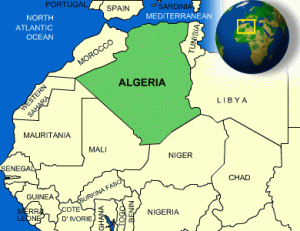
Understanding Algeria’s Economic Landscape: Algeria is the largest country in Africa. It boasts a diverse economy with multiple sectors contributing to its GDP.
The country is rich in natural resources. It is one of the world’s largest oil and gas producers. This makes the energy sector a key player in Algeria’s economy.
However, the government is keen on diversifying the economy. It is encouraging investments in non-energy sectors such as agriculture, manufacturing, and ICT.
Understanding this economic landscape is crucial for foreign investors. It helps identify potential areas for investment and growth.
The Role of Foreign Investment in Algeria’s Growth: Foreign investment plays a significant role in Algeria’s economic development. It brings in capital, technology, and expertise.
This investment stimulates economic growth. It creates jobs and boosts productivity in various sectors.
The Algerian government recognizes this. It has implemented policies to attract foreign investors.
These policies aim to improve the business environment. They also provide incentives for foreign companies to invest in Algeria.

Key Sectors with High Market Potential: Algeria’s market potential is vast. It spans across multiple sectors.
The energy sector is a key player. Algeria is a leading exporter of oil and gas. It also has significant renewable energy potential.
Agriculture is another promising sector. The government is keen to boost food production and reduce imports.
Manufacturing is also on the rise. The focus is on diversifying the economy and reducing dependence on oil.
These sectors offer lucrative opportunities for foreign investors. They are at the heart of Algeria’s economic development strategy.
Legal Framework and Investment Laws: Algeria has made strides in improving its legal framework. The aim is to attract more foreign investment.
The government has simplified investment procedures. It has also eased restrictions on foreign ownership.
The 51/49 rule was a notable change. It required majority Algerian ownership in foreign ventures. Recent amendments have relaxed this rule for certain sectors.
These reforms reflect Algeria’s commitment to fostering a conducive investment climate. They are a testament to the country’s openness to foreign capital.

Tax and Customs Incentives for Investors: Algeria offers attractive tax incentives to foreign investors. These include reduced corporate tax rates.
There are also exemptions on certain types of income. This is part of the government’s strategy to stimulate investment.
Customs duty exemptions are another benefit. They apply to imported materials and equipment for investment projects.
These incentives can significantly lower the cost of doing business. They make Algeria an appealing destination for foreign investment.
Investment Protection and Guarantees: Algeria provides robust protection for foreign investors. The government guarantees against expropriation. This ensures the security of investments.
Investors also have the right to repatriate profits and capital. This is a crucial factor for foreign investors.
The National Agency for Investment Development (ANDI) plays a key role. It facilitates foreign investment and provides necessary support.
These measures enhance investor confidence. They contribute to Algeria’s attractiveness as an investment destination.
Access to Resources – Land and Labor: Algeria offers ample resources for investment projects. Land availability is a key factor. The government provides industrial parks and special economic zones.
These zones are equipped with necessary infrastructure. They are ideal for setting up businesses.
Algeria also boasts a skilled labor force. The focus on workforce development is evident.
Investors can benefit from this pool of talent. It can significantly contribute to the success of their projects.
Support for Research and Development: The Algerian government encourages innovation. It provides support for research and development activities.
This initiative fosters technological advancement. It also enhances the competitiveness of businesses in the global market.
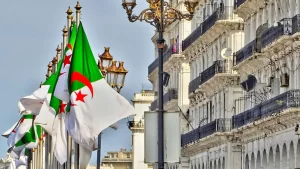
Success Stories of Foreign Investment in Action: Several foreign companies have found success in Algeria. Their experiences highlight the potential of the Algerian market.
One example is the French carmaker Renault. They have established a production plant in Oran, creating many jobs.
Another success story is the British Petroleum (BP). They have invested heavily in Algeria’s energy sector, contributing to its growth.
These examples demonstrate the potential for foreign investment in Algeria. They also underscore the benefits of government incentives.
Navigating the Investment Process with ANDI: The National Agency for Investment Development (ANDI) plays a crucial role in facilitating foreign investment in Algeria. It provides guidance and support to investors throughout the investment process.
ANDI also offers information on available incentives, helping investors maximize their benefits. This makes the investment process smoother and more efficient.
Public-Private Partnerships and Renewable Energy Initiatives
Public-private partnerships (PPPs) are a key part of Algeria’s economic growth strategy. They allow for shared risks and benefits, fostering a more collaborative investment environment.
In line with Algeria’s green energy goals, there are specific incentives for renewable energy projects. This sector presents a promising opportunity for foreign investors.
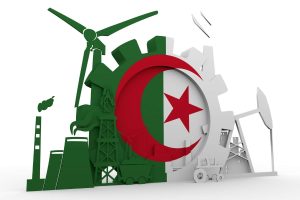
Challenges and Considerations for Investors: Investing in Algeria, like any foreign market, comes with its own set of challenges. Bureaucratic hurdles can sometimes slow down the investment process.
Political stability also plays a crucial role in investment decisions. It’s important to monitor political and economic developments closely.
Exchange rate fluctuations can impact investment returns. Understanding Algeria’s financial market is key to mitigating such risks.
Lastly, compliance with international standards and regulations is crucial. This includes understanding and respecting local culture and business practices.


